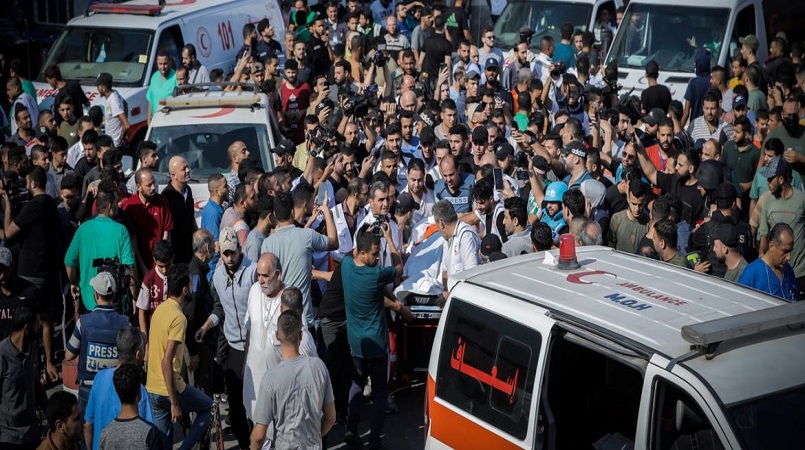
Vital supplies such as food, water and shelter were needed "yesterday" in Gaza and UNICEF is among those ready to help, an expert says.
UNICEF's Middle East and North African spokesperson Saleem Oweis said the delivery of aid was much needed inside Gaza with no water, food and services. He said it was already shaping as a humanitarian catastrophe.
Israel has been carrying out attacks on Gaza in response to deadly raids that killed hundreds of people earlier this month.
A deadly blast at a Gaza hospital earlier this week has killed up to 500 people but no death toll has been confirmed.
Both the Israel government and Palestinian officials have blamed each other.
US President Joe Biden, who has been visiting Israel, said his country's Defence data has backed up Israeli claims it was caused by a Palestinian rocket.
The attack on the hospital has heightened tensions in the region, already at boiling point since the Palestinian militant group Hamas launched an unprecedented attack on Israel from Gaza on 7 October that left 1400 people dead.
At least 3000 people have been killed in retaliatory Israeli strikes on Gaza, according to Palestinian health officials.
On aid, Biden said he had asked the Israeli cabinet to agree to the delivery of "live-saving humanitarian assistance to civilians in Gaza" based on the understanding it would go to civilians not Hamas - and that Israel had agreed aid could "begin to move from Egypt to Gaza".
Oweis told Morning Report today: "The soonest this can happen the better and we needed it really yesterday. The situation in Gaza is really dire and to be honest it is a humanitarian catastrophe there."
With no clean drinking water, people were drawing it from the sea for both drinking and washing which led to a high risk of dehydration and sea-borne diseases, he said.
He wanted to see an immediate end to warfare and the opening of humanitarian corridors so that aid could get through.
Oweis said UNICEF and other aid organisations have 70 trucks containing aid supplies near the borders of Gaza and were ready to move.
Water, food, water purification tablets, shelter and medicine were among the supplies that have been assembled.
"We are waiting for that moment when the gates are open and we are allowed in."
Some UNICEF workers remained on the ground in Gaza and they were "heroes" facing the same challenges that residents were living with during such "a traumatic time", Oweis said.
" ... but unfortunately now we've run out of supplies inside Gaza, we've used everything. That's why it's paramount to get all the supplies inside and -serve all the children and families in need."
